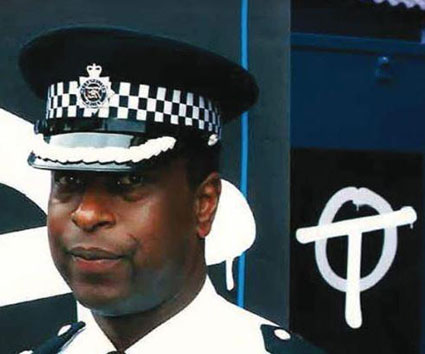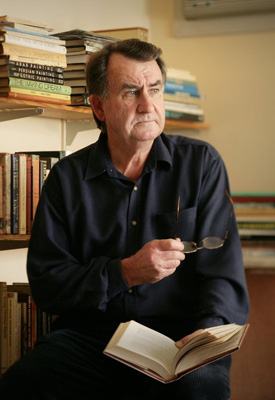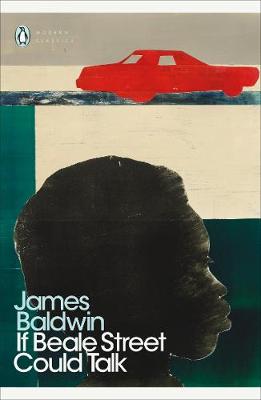One of the things I enjoy most about following the Women’s Prize for Fiction each year is that it always brings to my attention a number of books I might not have come across otherwise and almost certainly wouldn’t have read. Bernice L. McFadden is an American writer who has published several well regarded novels and a number of romance novels under the name Geneva Holliday, but she hasn’t been widely reviewed in the UK and this is the first of her novels that I’ve read. “Praise Song for the Butterflies” is the story of Abeo Kata who is raised in the fictional West African location of Port Masi, Ukemby. She lives in a comfortable middle class home with her doting parents Wasik who works for the treasury department and Ismae who is a former model. Her conservative old grandmother comes to live with them and shortly after this her father Wasik is falsely accused of embezzling money from the government and allegations of political corruption. With the grandmother’s encouragement Wasik comes to believe he’s been cursed and the only way to alleviate this condition is to “sacrifice” his seven year old daughter by leaving her at a rural Temple where she’s subjected to the most brutal treatment and forced into slave labour under the guise of spiritual servitude. The novel follows Abeo’s harrowing journey from being cast aside to a point where she can determine her own future. It’s a captivating, skilfully written tale which touches upon a number of pertinent and meaningful issues.
One of the most admirable things about this novel is the great economy of the author’s prose. McFadden writes short punchy chapters which have enough detail to really spark the reader’s imagination but which keep the story moving at a brisk pace. There are also several breath-taking twists to the story which make it a riveting read. Of course, writing in this way sacrifices some nuance and complexity which means certain aspects of the story don’t go into as much depth on certain topics as their enormity warrants. There are also occasions where it feels like McFadden relies a bit too heavily on coincidence and chance meetings to keep the plot moving. But overall it’s such a riveting story these minor quibbles hardly matter and I appreciate how vividly she forms a portrait of Abeo’s character and her perilous situation.
I also like how McFadden can make you second-guess your expectations and understanding of certain characters. The grandmother comes across as a benignly ornery and (almost comically) old fashioned presence until her intrusions have dire repercussions. Equally, Abeo’s American Aunt Serafine who makes annual visits to the Kata family comes across as such a benevolent and lively person until more complex aspects to her personality are eventually revealed. The author also has a graceful way of shifting perspective in the narrative so the story moves seamlessly between Abeo’s dramatic story, her mother Ismae’s plight and that of an African American philanthropist who establishes a centre for girls like Abeo (known as trokosi) to recuperate from their trauma. It takes real talent to compose a short novel that has so many sides and covers many years without making it feel too unwieldy.
It’s interesting how the story offers such a different perspective on slavery by highlighting how there can be modern instances of enforced labour which are simply called by another name. When Abeo’s Aunt Serafine and her friend visit Ukemby one year they take the family a trip to one of the infamous “slave castles” in what was known as the Gold Coast of West Africa. These sites have become pilgrimage spots for many descendants of the African diaspora and have featured in many novels from “Homegoing” to “Swing Time”. But the story which follows this visit offers such a different perspective on that heritage and how we can be blind to modern instances of slavery.
Since I’ve read this novel in the context of the Women’s Prize it’s also interesting comparing it to another nominated book on the list “Freshwater” by Akwaeke Emezi. I feel like these two novels offer such fascinating contrasts in contemplating African American experience in relation to heritage and modern African society. Where “Praise Song for the Butterflies” severely scrutinizes some patriarchal African practices and superstitions, “Freshwater” seeks out African traditions and belief systems to arrive at a more cohesive sense of being. Of course, these aren’t necessarily oppositional points of view but simply show the broad spectrum of African society which exists and what a complex relationship forms between African Americans and the continent of Africa itself when exploring issues to do with national and racial identity.
Overall, this novel contains such a compelling tale of survival and dynamically explores the meaning of family. Bernice L. McFadden has such admirable control in how she paces and evokes a story that I’m so glad I’ve read this novel and will eagerly read more of her books in the future.


























